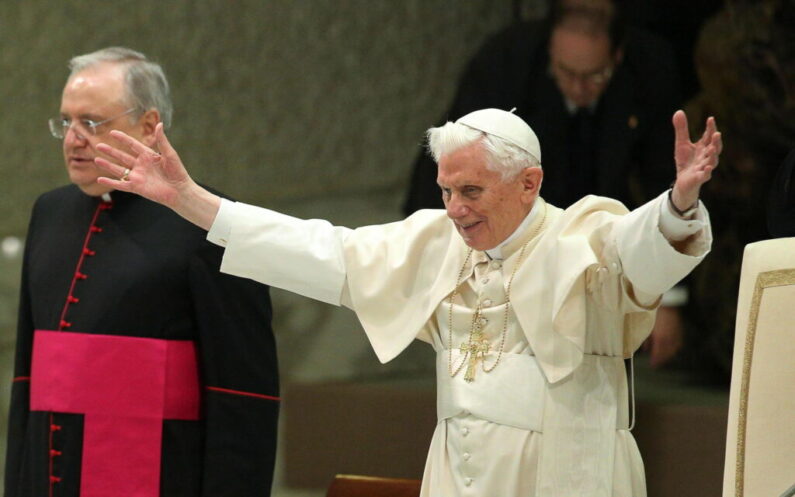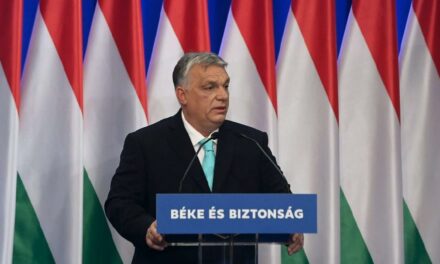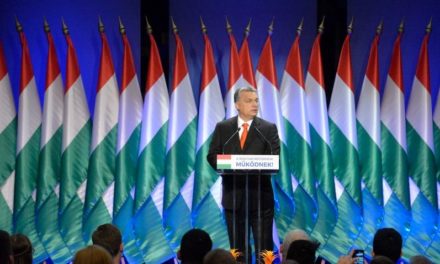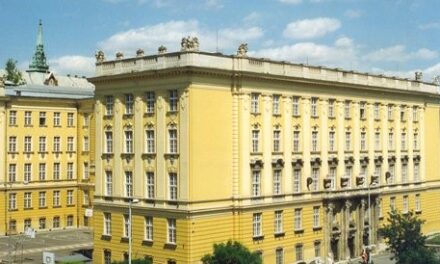XVI died at the age of ninety-five on Saturday at 9:34 a.m. Pope Benedict is retired, who was the head of the Roman Catholic Church between 2005 and 2013, the Vatican announced.
Vatican spokesman Matteo Bruni said:
It is with pain that I announce that XVI. Retired Pope Benedict died today at 9:34 a.m. in the Mater Ecclesia (Mother of the Church) monastery in the Vatican. We will provide further information as soon as possible.
XVI.
Pope Benedict sat on the throne of St. Peter between 2005 and 2013. During his papacy, he served the Mother Church with his great knowledge, humility and love. After his resignation in 2013, he lived in peace and seclusion in the Vatican. He left the territory of Italy only once, when he returned home to Germany in the summer of 2020 to visit his dying brother. Joseph Ratzinger spent his youth in war-torn Germany. After his mandatory military service - during which he also spent a short time in captivity - he entered the Catholic seminary together with his brother. Thanks to his good abilities, diligence and insight, he quickly moved up the church ranks. In 1977, at the age of fifty, VI. He was ordained a cardinal by Pope Paul.
In 1981, he became prefect of the Congregation for Religion, then in November 2002, dean of the college of cardinals, and at the same time bishop-cardinal of Ostia.
He became a close friend II. With Pope János Pál, with whom they had the same opinion on many things. He soon became the first person after the Pope. He celebrated the funeral mass of János Pál on April 8, 2005, and led the opening of the papal conclave. After the death of the Polish Pope, many thought that it would take time to choose a worthy successor. Nevertheless, after only four votes - and two days spent at the conclave - Ratzinger was voted in with a two-thirds majority. The body of cardinals elected him on April 19, 2005, and he was installed on April 24. He personally became the German leader of the Catholic Church again after five hundred years.
XVI.
, Pope Benedict faithfully represented the teachings of the church and stood up for the issues that were important to him. He supported the institution of mandatory priestly celibacy, opposed the ordination of women to the priesthood, artificial birth control, the civil recognition of homosexual relationships, abortion and euthanasia. He faithfully fought for these values before and after his papacy. In 2004, as prefect of the Congregation for the Doctrine of the Faith, he wrote the following letter to the bishops of the United States:
“Your spiritual leader should call on Catholic public officials who openly campaign for pro-abortion laws not to take the sacrament as long as they support such laws. If they still contribute to Holy Communion despite the invitation, the person who offers it will deny it to them".
In the introduction to the Italian-language anthology La vera Europa, identitá e missione (The real Europe, identity and mission), he criticized the world, which is increasingly moving away from conservative values.
Ratzinger describes it in this: according to him, the essence of marriage - as a community of men and women in the service of the "transmission" of life - was clear until the spread of effective contraceptive drugs. The emeritus pope said that the appearance of the pill raised all types of sexual intercourse to the same level. As a result, sexuality without reproduction and reproduction without sexuality, or even the establishment of a sexual relationship between the same sex, became socially accepted. This way of seeing also leads to the emergence of debates around euthanasia and abortion.
He also wrote about the idea of "human ecology" in the encyclical. According to him, humanity has already recognized the "limit of feasibility" in nature, which cannot be crossed with impunity. At the same time, "human ecology" has not yet been realized. So we have not yet come to the realization that transgressing the limits of human nature leads to the same destruction as environmental limits.
In February 2013, he resigned his papal dignity citing health reasons. Since then, Pope Emeritus Benedict XVI has been living in seclusion in the Vatican. On April 27, 2014, he participated in the "Holy Mass of the Four Popes", during which he was canonized by his successor, Pope Francis II. János Pál and XXIII. John.
Ratzinger received a lot of criticism before, during, and after his papacy because he always firmly stood by the teachings of the church. Still, he refused to compromise. His fellow cardinals always spoke highly of Pope Benedict's knowledge and serious ecclesiastical expertise. He was eminently knowledgeable not only on the church level, but also in terms of world affairs. Every morning he read the latest news from the international press in six languages. He spoke six languages fluently and understood another four well.
In his spare time he liked to read and play the piano. His favorite composer was Mozart, but he also enjoyed playing Beethoven.
Source: vasarnap.hu
Cover image: MTI/EPA/Alessandro Di Meo












